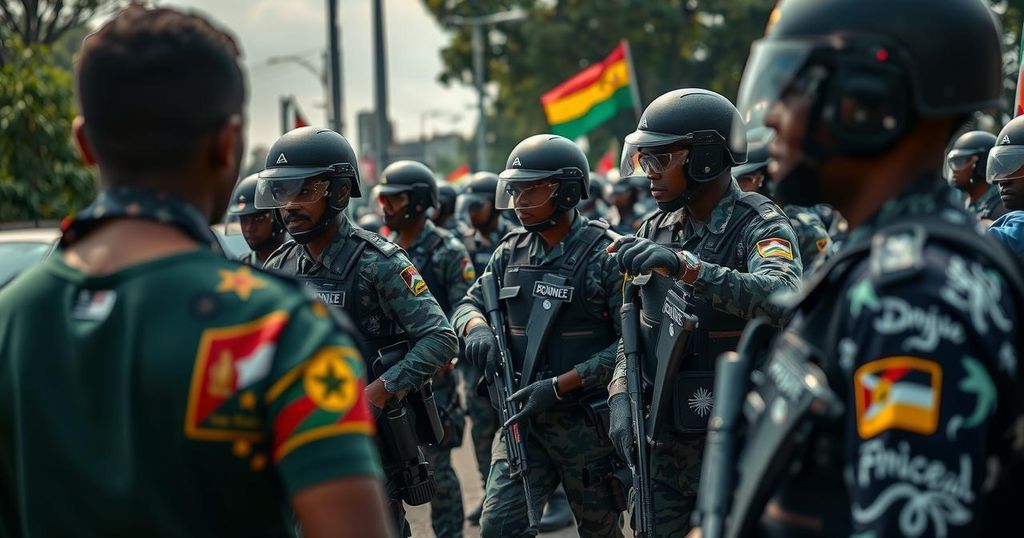Mozambique Election Crisis: Police Violence Leads to Tragic Loss of Young Lives

In Mozambique, protests against electoral results have resulted in violence, particularly affecting children, with reports of young individuals being shot during demonstrations. Opposition leader Venâncio Mondlane’s claims of election fraud have led to nightly protests where citizens bang pots and pans in dissent against the ruling Frelimo party. Multiple deaths have raised alarms over police brutality, prompting calls for accountability and highlighting the frustrations of the youth in their fight for justice and social change.
The recent aftermath of the presidential elections in Mozambique has ignited severe outcries and violence, culminating in tragic incidents where children have lost their lives during protests. Young Antonio Juaqim, merely 16 years old, was killed while partaking in a pot-banging protest against the ruling party, Frelimo, which has been in power for nearly half a century. His uncle recounted the heartbreaking details of the incident while expressing his anguish over the growing violence.
These protests erupted in response to allegations of a rigged electoral process following the declaration of Frelimo’s candidate, Daniel Chapo, as the winner with a substantial majority. Opposition leader Venâncio Mondlane, who contested elections as an independent after previously leaving the main opposition party Renamo, claimed that the electoral process was manipulated and called for mass protests, leading thousands of citizens to join in nightly demonstrations marked by the banging of pots and pans, echoing their discontent across Maputo. Tragically, this peaceful demonstration has resulted in numerous fatalities, including at least ten children, amidst escalated police confrontations during the protests.
In a climate of mounting tension, authorities have attempted to shift blame onto Mondlane and his supporters, alleging that they incited violence and used children as shields during confrontations. Meanwhile, various human rights organizations have condemned the actions of the police and called for accountability. The loss of young lives during this political turmoil raises significant concerns about the future stability of Mozambique, particularly as many citizens, especially the youth, seek greater opportunities and social justice, demonstrating a disconnect between the ruling party’s narrative and the public’s stark reality.
Voices within the opposition and civil society are calling for justice and reform, as the cries for change reverberate amidst mourning families and angry citizens filling the streets. As students and activists seek a society free from violence, it highlights the urgent need for dialogue and reconciliation in a nation grappling with its complex political legacy.
Mozambique, a southern African nation with a turbulent political landscape, has faced challenges ever since it gained independence 49 years ago. The ruling party, Frelimo, has dominated the political scene since independence, leading to allegations of electoral fraud and suppression of dissent. The ongoing protests highlight the frustrations of young people who are increasingly disillusioned with the government, especially in light of high unemployment and economic difficulties. The recent elections have exacerbated these tensions, resulting in violence and loss of life, particularly among youths taking part in peaceful protests. The international community and watchdog organizations are closely monitoring the situation, emphasizing the need for human rights and democratic processes in Mozambique.
The tragic events surrounding the recent protests in Mozambique serve as a stark reminder of the urgent need for political and social reform. The deaths of young protestors like Antonio Juaqim and Alito Momad highlight the dire consequences of state violence against citizens advocating for change. In light of these events, it is imperative for all stakeholders to seek dialogue, accountability, and justice in order to pave the way for a more stable and democratic Mozambique. The plight of the youth in this nation underscores a collective yearning for a brighter future, free from violence and oppression.
Original Source: www.bbc.com







